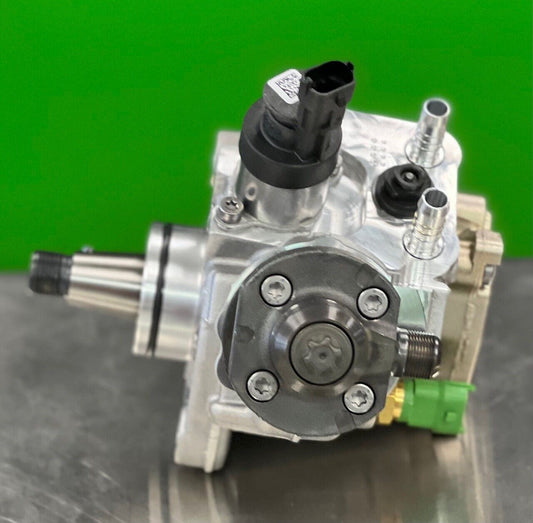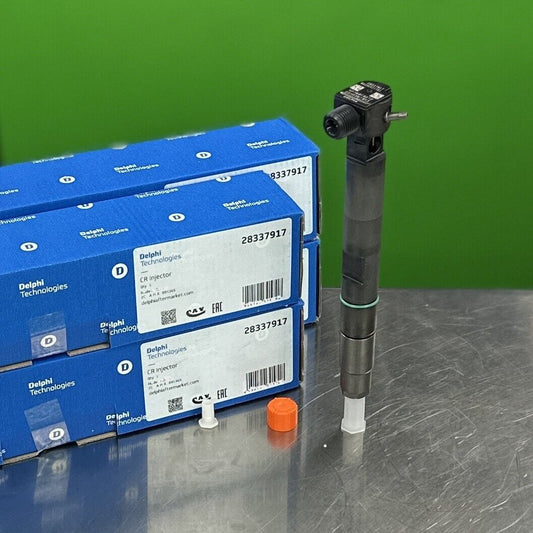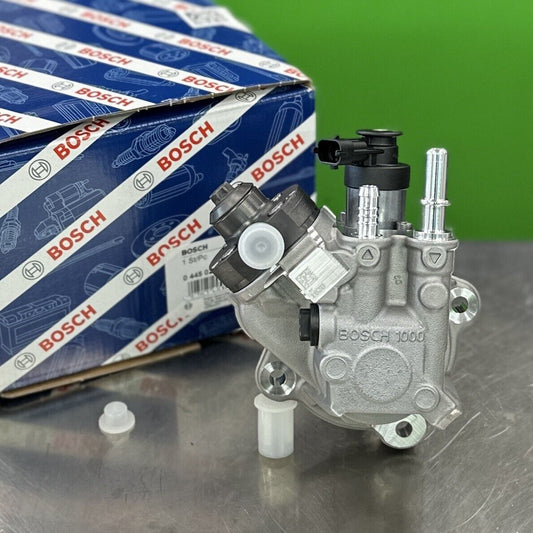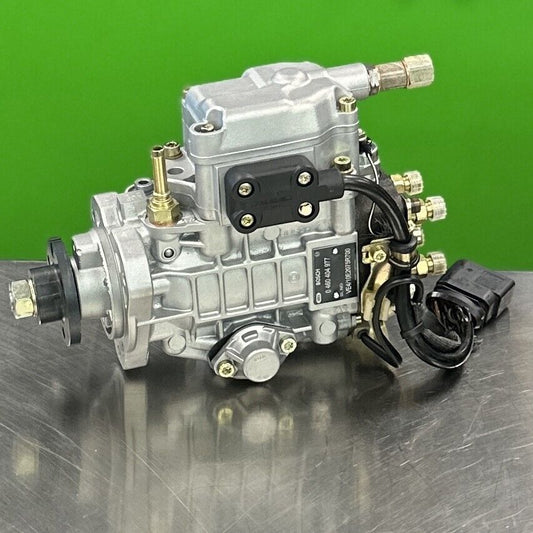DIY Fuel Injector Cleaning: Is It Worth the Effort?
DIY fuel injector cleaning can be a tempting option for car owners looking to save money and improve engine performance. But is it really worth the effort? Let's dive into the pros and cons of cleaning fuel injectors yourself versus opting for professional service.
Importance of Fuel Injector Maintenance
The importance of fuel injector maintenance cannot be overstated when it comes to keeping your vehicle running smoothly and efficiently. Fuel injectors are a crucial component of your car's engine, responsible for delivering the precise amount of fuel into the combustion chamber at the right time. This process directly impacts the engine's performance, fuel efficiency, and emissions control.
Regular maintenance of fuel injectors is essential to prevent issues such as clogging, leaks, and poor spray patterns, which can lead to engine misfires, decreased fuel economy, and increased emissions. By ensuring that your fuel injectors are clean and functioning properly, you can optimize your vehicle's performance and prolong its lifespan.
Think of fuel injectors as the heart of your engine, pumping fuel with precision to keep everything running smoothly. Just like how you need to take care of your heart to maintain good health, your vehicle's fuel injectors require attention to operate at their best.
Ignoring fuel injector maintenance can result in costly repairs down the line, as issues with clogged or malfunctioning injectors can cause damage to other engine components. By staying proactive and regularly cleaning and inspecting your fuel injectors, you can avoid potential breakdowns and ensure that your vehicle continues to perform at its peak.
DIY Fuel Injector Cleaning Methods
When it comes to DIY fuel injector cleaning, there are several methods you can consider to improve your vehicle's performance and efficiency. One common approach is using fuel injector cleaners, which are additives designed to remove deposits and build-up from the injectors. These cleaners are easy to use and can be added to your fuel tank during regular fill-ups.
Another DIY method is using ultrasonic cleaning kits, which provide a more thorough cleaning by using sound waves to agitate the cleaning solution and dislodge debris from the injectors. While these kits may require a bit more effort and investment, they can be effective in restoring injector performance.
If you prefer a hands-on approach, manual cleaning techniques can also be utilized. This involves removing the injectors from the engine and cleaning them manually using specialized tools and cleaning solutions. While this method offers the most thorough cleaning, it requires technical know-how and may be more time-consuming.
It's important to note that each DIY cleaning method has its own set of pros and cons. Fuel injector cleaners are convenient but may not provide as deep of a clean as ultrasonic kits or manual cleaning. Ultrasonic cleaning kits offer thorough cleaning but come with a higher cost and may require some technical skills to operate effectively. Manual cleaning, while effective, can be labor-intensive and may pose risks if not done correctly.
Before deciding on a DIY cleaning method, consider factors such as your comfort level with working on your vehicle, the severity of the injector issues, and the time and resources you are willing to invest. Ultimately, the goal is to improve your vehicle's performance and efficiency while minimizing the risks associated with injector build-up.
Professional Fuel Injector Cleaning Services
When it comes to maintaining your vehicle's fuel injectors, professional cleaning services offer a level of expertise and precision that DIY methods may not always achieve. Professional fuel injector cleaning services utilize advanced cleaning processes and equipment to ensure thorough and effective results. These services often include diagnostic tests to identify any underlying issues and ensure that the injectors are functioning optimally.
One of the key advantages of opting for professional cleaning services is the potential long-term savings they can offer. By keeping your fuel injectors clean and well-maintained, you can improve your vehicle's fuel efficiency, leading to savings on fuel costs in the long run. Additionally, regular professional cleaning can help prevent potential injector issues that could result in costly repairs down the line.
Professional fuel injector cleaning services are also beneficial for those who may not have the technical skills or experience to perform DIY cleaning effectively. Trained professionals have the knowledge and expertise to handle fuel injectors with care and precision, reducing the risk of damage or improper cleaning techniques that could impact engine performance.
Moreover, professional cleaning services often come with warranties or guarantees, providing peace of mind knowing that the job will be done correctly. This level of assurance can be particularly valuable for those who rely on their vehicles for daily transportation and cannot afford any downtime due to injector issues.
In conclusion, while DIY fuel injector cleaning can be a cost-effective option for some, professional cleaning services offer a higher level of expertise, precision, and long-term benefits. By considering the advantages of professional cleaning, vehicle owners can make an informed decision based on their specific needs and preferences.
Factors to Consider Before DIY Cleaning
Before embarking on the journey of DIY fuel injector cleaning, there are several crucial factors that need to be carefully considered. These factors can significantly impact the success and effectiveness of the cleaning process, as well as the overall health of your vehicle. Let's delve into the key considerations that should not be overlooked:
- Vehicle Age and Mileage: The age and mileage of your vehicle play a vital role in determining the condition of the fuel injectors. Older vehicles with high mileage are more likely to have buildup and deposits that require thorough cleaning.
- Symptoms of Injector Issues: It's essential to pay attention to any symptoms indicating potential fuel injector problems, such as rough idling, poor acceleration, decreased fuel efficiency, or engine misfires. Addressing these issues promptly can prevent further damage.
- Technical Skills Required: DIY fuel injector cleaning involves working with intricate engine components and specialized cleaning tools. Assess your technical skills and comfort level with automotive maintenance tasks before attempting the cleaning process.
- Availability of Resources: Ensure you have access to the necessary resources, including quality cleaning products, safety equipment, and reliable instructions or guides. Lack of proper resources can hinder the effectiveness of the cleaning process.
- Time and Effort: DIY fuel injector cleaning requires time, patience, and attention to detail. Consider whether you have the availability and willingness to dedicate the required time and effort to complete the cleaning process thoroughly.
By carefully evaluating these factors and weighing the pros and cons of DIY fuel injector cleaning, you can make an informed decision that aligns with the specific needs of your vehicle and your level of expertise. Remember, the goal is not just to clean the fuel injectors but to enhance the overall performance and longevity of your vehicle's engine.
```htmlFrequently Asked Questions
-
Is DIY fuel injector cleaning safe for all vehicles?
DIY fuel injector cleaning methods are generally safe for most vehicles, but it's essential to consider the age and condition of your vehicle before proceeding. Older or high-mileage vehicles may have more delicate components that could be damaged during the cleaning process.
-
How often should fuel injectors be cleaned?
The frequency of fuel injector cleaning depends on various factors such as the quality of fuel used, driving conditions, and maintenance history. As a general guideline, it's recommended to clean fuel injectors every 30,000 miles or as advised by your vehicle's manufacturer.
-
Can DIY cleaning solve all fuel injector problems?
DIY cleaning methods can help address common fuel injector issues such as clogging or poor spray patterns. However, for more complex problems like internal damage or electrical issues, professional cleaning services or replacement may be necessary.
-
Are there any signs that indicate fuel injectors need cleaning?
Common symptoms of dirty fuel injectors include rough idling, engine misfires, decreased fuel efficiency, and hesitation during acceleration. If you experience any of these issues, it may be time to consider cleaning your fuel injectors.
-
What are the risks of DIY fuel injector cleaning?
While DIY cleaning can be cost-effective, there are risks involved such as damaging the injectors, introducing debris into the fuel system, or not fully resolving the underlying issue. It's crucial to follow proper procedures and use quality cleaning products to minimize these risks.



